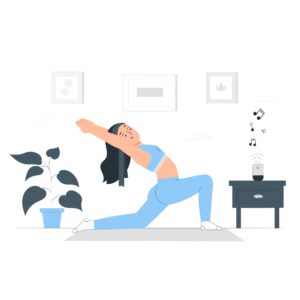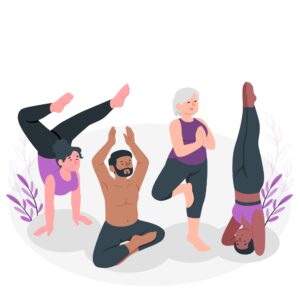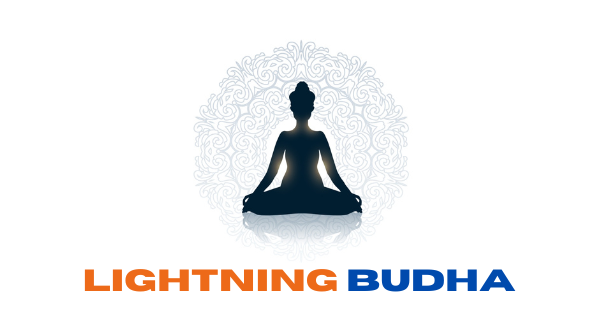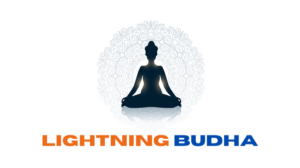Discover the transformative benefits of yoga for mental and physical well-being.
Reduce stress, improve flexibility, enhance focus, and promote holistic wellness. Explore the profound advantages of yoga today.
In our fast-paced modern world, where stress and anxiety have become all too common, finding effective ways to enhance our mental and physical well-being is crucial.
“Yoga is the journey of the self, through the self, to the self.” – The Bhagavad Gita

One practice that has stood the test of time and continues to gain popularity is yoga. Originating from ancient India, yoga offers a holistic approach to wellness, combining physical postures, breathing exercises, meditation, and mindful awareness.
In this article, we delve into yoga’s profound benefits for our mental and physical health.
1. Stress Reduction and Relaxation:
Yoga serves as a powerful antidote to the stresses of daily life. Through the combination of gentle movements, controlled breathing, and mindfulness, it helps activate the body’s relaxation response, reducing cortisol levels and promoting a sense of calm.

Regular yoga practice can lead to improved sleep, reduced anxiety, and an overall enhanced ability to cope with stress.
2. Increased Flexibility and Strength:
One of the most apparent benefits of yoga is its ability to improve flexibility and strength. The various yoga postures, known as asanas, gently stretch and lengthen the muscles, promoting a greater range of motion and improved muscle tone.

With consistent practice, individuals often experience increased strength, improved posture, and reduced risk of injuries.
3. Enhanced Mental Clarity and Focus:
Yoga is not just a physical practice; it also cultivates mental clarity and focus. Through the integration of breath and movement, yoga promotes a state of mindfulness that allows the practitioner to be fully present in the moment.

This heightened awareness can improve concentration, memory, and cognitive function, leading to increased productivity and mental agility.
4. Emotional Well-Being and Self-Awareness:
Yoga provides a nurturing space for self-reflection and self-awareness. Combining physical movement with deep breathing and meditation encourages individuals to connect with their emotions and cultivate a sense of inner peace.

Regular practice can lead to improved emotional regulation, reduced symptoms of depression and anxiety, and an overall greater sense of well-being.
5. Improved Cardiovascular Health:
The physical aspects of yoga, including dynamic flows and more vigorous practices like Power Yoga, can significantly benefit cardiovascular health. These practices elevate the heart rate, enhance circulation, and improve overall cardiovascular fitness.

Additionally, relaxation techniques and controlled breathing in yoga can help lower blood pressure and reduce the risk of heart disease.
6. Better Respiratory Function:
Yoga incorporates various breathing exercises, known as pranayama, which promote optimal respiratory function. These techniques focus on deepening and slowing down the breath, increasing lung capacity, and stimulating the relaxation response.

Regular pranayama practice can enhance overall lung function, improve respiratory conditions, and increase oxygen flow throughout the body.
The Science Behind Meditation: How It Changes Your Brain?
Conclusion:
Yoga is a remarkable practice that offers numerous benefits for the mind and body. From reducing stress and anxiety to improving flexibility, strength, and cardiovascular health, yoga provides a holistic approach to well-being.
Whether you’re a beginner or an experienced practitioner, incorporating yoga into your routine can lead to transformative changes in your mental and physical health.

So, roll out your mat, take a deep breath, and embark on a journey of self-discovery and holistic wellness with yoga.
Remember, the true essence of yoga lies not in perfection but in embracing the practice with an open heart and a willingness to explore the profound connection between mind, body, and spirit.
“Yoga is the perfect opportunity to be curious about who you are.” – Jason Crandell
References:
- Yoga for stress management: https://www.ncbi.nlm.nih.gov/pmc/articles/PMC3193654/
- Yoga and mental health: Promising road ahead: https://www.ncbi.nlm.nih.gov/pmc/articles/PMC3768222/


